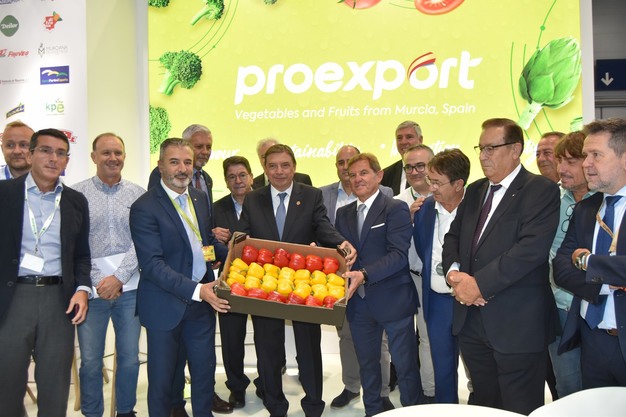Spanish fresh fruit and vegetable exports closed 2023 with a 5% growth in terms of value, which ranged between 16.6 and 16.8 billion euros, according to estimates from the Spanish Federation of Associations of Producers Exporters of Fruits, Vegetables, Flowers and Live Plants (FEPEX), shared by Proexport. This growth was achieved in a year marked by adverse weather conditions, particularly drought, rising competition from third countries, and adaptation to growing regulations on production and commercial activity, both nationally and EU-wide.

The volume will be lower than 12 million tons in 2022, according to estimates based on data from the Department of Customs and Special Taxes updated in October. Up until that month, horticultural exports fell by 6% in terms of volume and grew by the same percentage in terms of value, totaling 9 million tons and 13.47 billion euros, respectively.
Imports will maintain their upward trend, in line with what has been happening in recent years. Up until October, imports grew by 8% in terms of volume and by 19% in terms of value, reaching 3.3 million tons and 3.638 billion euros. The continuous growth of imports in the national and EU markets is precisely one of the factors that are marking the development of the horticultural sector. In the EU, imports from third countries up until September 2023 grew by 12% compared to the same period of the previous year, totaling 13.907 billion euros. This has been driven by the divergence in labor, social, or phytosanitary regulations between EU and non-EU producers, which has been making the EU model less and less competitive.
This year has also been marked by adverse weather conditions, especially drought, which has aggravated the water shortages in the main fruit and vegetable-producing areas. Thus, both FEPEX and PROEXPORT believe that sufficient access to water at an affordable cost is a determining variable for the future of the producing and exporting sector.
In this regard, the president of the Association of Producers-Exporters of Fruits and Vegetables of the Region of Murcia (PROEXPORT), Mariano Zapata, recently said that: "Murcia and the Spanish southeast need very little water to produce vegetables and fruits in relation to the total available in Spain" and called on the Government to reach "agreements to guarantee that the Tajo-Segura Transfer will be carried out while seeking also to secure additional resources from groundwater, desalination or the reuse of regenerated waters."
A revision of the current regulatory framework, both national and EU-wide, is also considered crucial for the future. This framework prioritizes the control of farm management and environmentalist theses without taking into account the specific characteristics of horticultural production and its capacity to add value to the economy and society. PROEXPORT said that, in the Region of Murcia, the current Law of the Mar Menor needs to be urgently revised to change the articles that lack sufficient technical rigor or that penalize sustainable agricultural activities in the area without thereby protecting the salt lagoon.
The latest rise in the minimum wage, which is driving up labor costs in a sector where labor can represent up to 45% of the production costs in some crops, is of particular concern. The increasingly lower availability of phytosanitary products, which is affecting yields, quality, and food safety, is also a cause for concern. As for the marketing, FEPEX warns that the producer sector and the retail have expressed their opposition to the obligation to sell in bulk in formats smaller than 1.5 kilos, as that would make the strategy of differentiation by origin and quality practically unfeasible and would lead to an increase in the amount of waste generated in stores.










